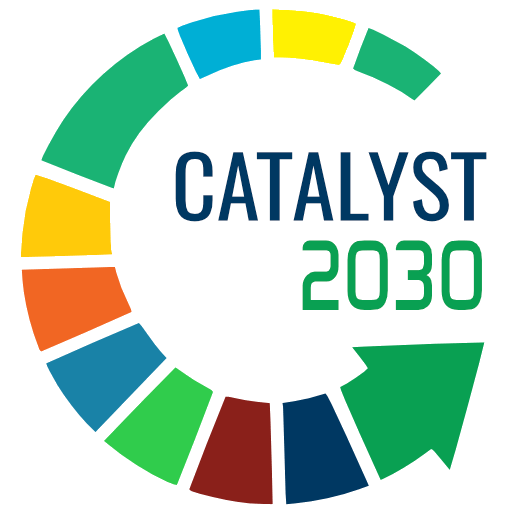
Economics is a difficult and boring subject. That’s how many people sum it up and prefer not to risk studying and debating it. I agree that it’s not one of the easiest subjects. But I disagree with those who don’t see a certain poetry in its complexity.
Economics, although some think it’s an exact science, is in the field of applied social sciences. This is because the numbers are predictable, but our economic choices are in the realm of the all too human.
The origin of the word economy ( oikos – house; nomos – regulation/management) shows how much its function is associated with managing scarce resources. Economics is used to think about the best ways to apply our limited resources to the management of a house – be it our home or the entire planet.
What are these resources?
A major distortion spread by neoliberal capitalist thinking has been the notion that the scarcest and most important resource on the planet is finance – represented by dollars, gold, shares, cryptocurrencies, among other inventions of this system.
The word invention is used quite intentionally here, since systems are quickly naturalized and we forget that they were once created by people. We invented – in fact 38 white men invented at Mont Pélerin – an economic system that creates:
-
-
- Ever greater social inequalities – the economist Piketty (2014) has already warned us that we have only seen greater social chasms in societies that allowed human slavery. Oxfam’s recent report (2025) also shows us how this inequality is growing. The world’s 2,900 billionaires receive per day what an average wage earner in Brazil would need 640 years to accumulate.
- The socialization of externalities and individualization of profits –
- this happens every time people become millionaires, billionaires (and now even trillionaires) by exploiting natural resources that should belong to everyone without being properly taxed for the carbon emissions and other environmental damage that their private operations generate for the whole collective. We return to the Oxfam report, which also points out the inequality between people in the generation of environmental impacts. Billionaires emit greenhouse gases in one hour that it takes people in the 66% poorest group in the world a lifetime to emit.
- the transformation of nature into a resource – a process that some authors, such as Morin, call the desacralization of nature and which means that, beyond biodiversity, we increasingly lose the link with our essence. According to Daniel Wahl (2016, p.33) “the great problem with the idea that nature and culture are separate is that it predisposes us to create cultures that exploit and degrade ecosystems everywhere. Such cultures tend to have economic systems focused around notions of scarcity and competitive advantage, while regenerative cultures understand how collaborative advantage can foster shared abundance.”
-
The big question is: if we invented this system that brought us to the current scenario of polycrises, isn’t it time we invented something different?
Why not regenerate the economy?
Regenerating can be understood as the process of creating life from the recognition that something deserves to be reborn. The cycle of life – death – life applies to people, animals, plants, objects, companies, ideas… Every day new forms of existence die and are born (or regrow).
Various paths have been devised to regenerate the economy: the Circular Economy (perceives waste as a design error in the system), the Care Economy ( includes the U$10.8 trillion generated by unpaid care), the StationaryEconomy ( constant maintenance without growth), the Degrowth Economy ( reducing environmental impacts with new parameters), the Donut Economy ( attention to the planetary limit for our excesses and the human limit for scarcity – the safe place for life), the Good Living Economy ( decolonizing the economy with ancestral knowledge and integration with nature), among others.
To take just one example of how these changes can generate revolutions, the Care Economy is made up of all the unaccounted-for work to raise children to autonomy, support the elderly, people with disabilities and other vulnerable groups in their quest for dignity and access to basic rights. This care is almost always linked to the female gender and, as well as being undervalued, is not valued. The current scenario stems from the legacy of slavery (caregivers didn’t get paid) and a society that is still patriarchal (women are less important). For this reason, a recent survey by Think Olga in Brazil (2025) found that women spend an average of 61 hours a week on unpaid work. Men spend 11.
But what would our society be like if this work were accounted for? Think Olga’s research reinforces a fact that Muhammad Yunus has defended for decades to justify his social loans to women: they spend 90% of their resources on others and only 10% on individual projects.
It’s important to reflect on what our society would be like if women had more access to resources. What would our society be like if the system didn’t feed and increase inequality? It’s time to regenerate the economy! And it will only be possible if we start by revisiting our concepts of what has value, what needs to be conserved and what needs to be distributed.
Economics isn’t just about money. It’s about how we choose to live together.
References:
OXFAM. Annual Report – At Whose Expense? 2025. Available HERE
PIKETTY, Thomas. Capital in the 21st century. Ed Intrínseca: São Paulo, 2014
THINK OLGA. Research Their Dreams. 2025 Available HERE
YUNUS, Muhammad. The banker to the poor. The evolution of microcredit that helped the poor in dozens of countries. Ed Ática: São Paulo, 2000.
WAHL, Daniel. Designing Regenerative Cultures. Ed. Bambual: São Paulo, 2020.
Mariana Madureira is the executive director of Raízes Desenvolvimento Sustentável and a fellow of the Wellbeing Economy Alliance (WEALL) and Post Growth Institute, organizations that study and promote new economies.

